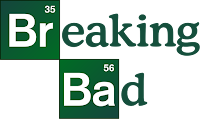Hank Schrader, "Breaking Bad"
To be honest, I was late to the party when it came to this neo-western crime drama. Although I thoroughly enjoyed Breaking Bad, I definitely wish I hadn’t heard all the hype beforehand because it definitely impacted my experience in that I think I expected too much going in.
 |
| Dean Norris |
But you’ll notice that Hank is still kickin’ ass and takin’ names in the DEA world throughout the series, so why does this ONE perpetrator bother him so much? While his struggle is rather obvious, the reason behind it may not be so clear cut.
Hank is busting meth labs from his first appearance in the show and it’s fairly obvious that he really enjoys it. Throughout the series he kills Tuco, a Mexican drug kingpin, in a shootout which earns him a promotion in the office and transfer to El Paso, Texas. He also hailed as a hero after the death of Gustavo Fring, a prominent methamphetamine distributor, orchestrated by the main character Walter White.
When Walt quits the methamphetamine business, Hank is convinced that he will never catch Heisenberg and the DEA urges him to drop the case. Though despondent, Hank never really gives up.
During his time in El Paso, Hank remained obsessed with the case to the point of experiencing panic attacks and exhibiting an overt amount of aggression both at work and socially. This case eats away at Hank from the inside out, but why?
For federal firecrackers like Hank, intelligence is highly valued and closely guarded. He is a very prideful and confident character and Heisenberg’s ability to remain aloof is an insult to this intelligence.
As a blonde, female athlete, I relate to this very strongly because people never expect that I’m a double major with a 4.0 in my major, or that I graduated third in my class in high school, or that I have an eidetic memory. People are always surprised to find out that I’m smart and it’s infuriating.
Even in my altercations with friends, family, lovers, etc., nothing makes me more upset than when my intelligence is attacked and whether Hank knows it or not, I think this is a lot of what he is feeling.
The first things you notice about Hank are his sense of humor and frankly, the fact that he’s a badass. His intelligence isn’t really one of his defining characteristics, at least not to those evaluating him. However it is to him and I argue that, subconsciously, he expends a significant amount of energy trying to prove himself in that regard.
People constantly striving to prove their intelligence often struggle to take criticism and really don’t like to be told no… trust me. Given this dynamic, you can imagine how infuriating it must be for Hank to be directed to shift his focus from the Heisenberg case. He can’t stand the idea of being outsmarted by Heisenberg and to him this case becomes less about justice and more about his own pride.
Imagine the shock when he finds out his brother-in-law was behind the whole thing. Not only that, this a person that Hank confided in and even somewhat involved in this investigation.
While Hank was temporarily confined to a wheelchair, he did ask Walt for minor help with things like transportation during his after-hours investigation of Heisenberg. In addition to the physical labor he requested of Walt, Hank constantly vented his frustrations with the case to his brother-in-law throughout the course of the series.
Walt had a very intimate understanding of Hank’s obsession with the Heisenberg case so this has a whole huge element of betrayal beyond just the fact that they’re family. Hank actively confided in Walt and Walt watched him suffer as a result of his involvement in the methamphetamine business.
Furthermore, Hank has no hard evidence against him and Walt knows that. Upon being confronted, Walt also reveals that his cancer is back and that he would never stand trial anyway. So now Hank knows, but he literally can’t do a damn thing about it and Walt adds insult to injury by telling him to “tread lightly.”
Again, Hank’s intelligence is under attack here. His brother-in-law, confident and friend was behind his career-ruining obsession and, although indirectly, his ultimate death. Although he is shot pretty much execution style by Jack Welker, he maintains his dignity while staring down the barrel of a gun.
Walt begs Jack to spare Hank’s life and offers him $80 million to let him live. Hank refuses to beg for his life and takes a shot at Walt saying that he is the smartest guy he knows and asks how he is too stupid to see that Jack has already made up his mind. He looks up at Jack and says “do you what you’re gonna do” and before he even finishes his sentence Jack sends a bullet through his brain.
Although it led to his death, Hank protected something important to him even in the face of bullet and a lot about human vitality is shown in the face of death. Hank’s death is one of the most compelling scenes in the series and his last words will stick with me for a long time.




Comments
Post a Comment